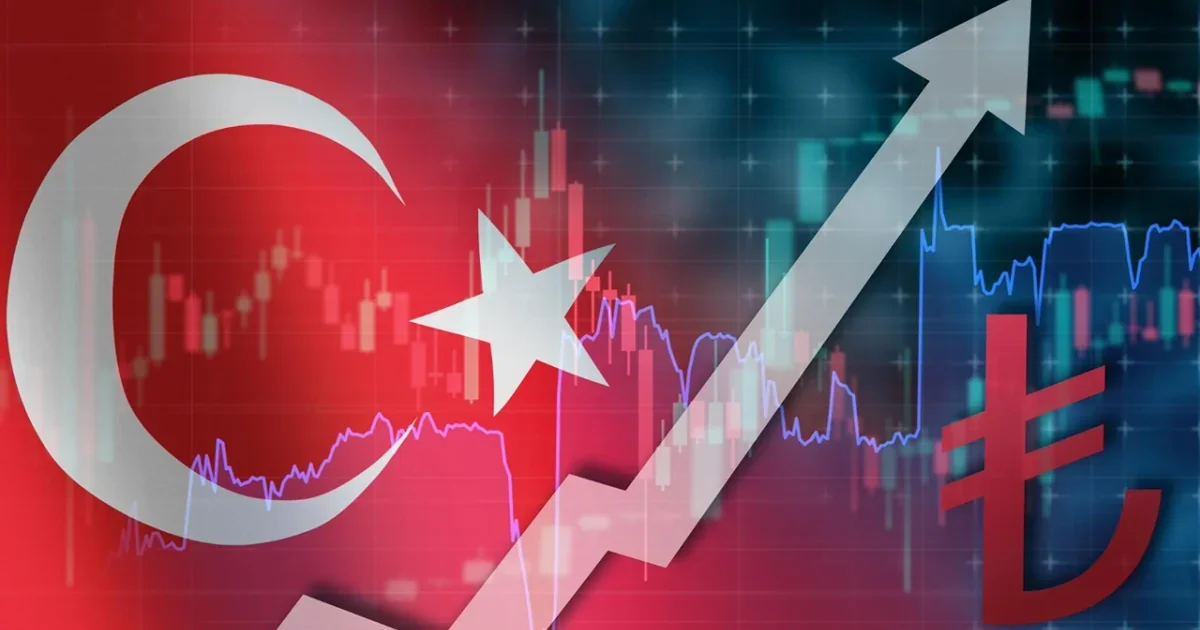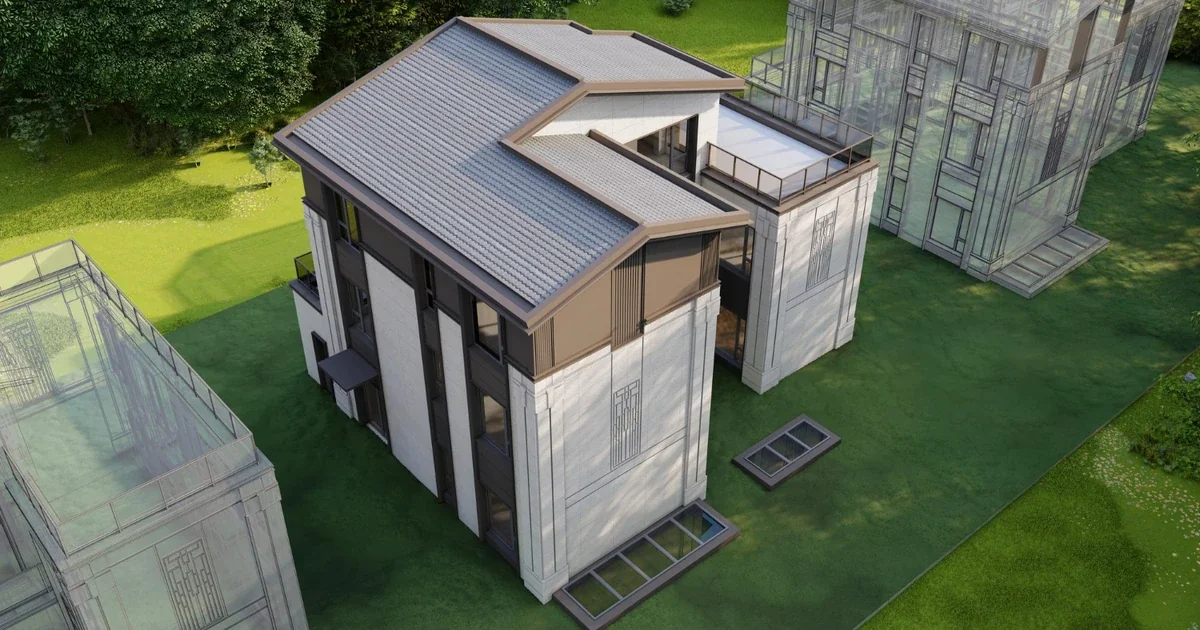Real Estate Tokenization in Saudi Arabia: How to Safely Own Digital Shares?
November 26, 2025
Real estate investment in the Kingdom of Saudi Arabia is no longer limited to owners of large capital or major companies. Real Estate Tokenization technology has brought about a real revolution in the concept of ownership, transforming rigid paper deeds into flexible digital assets capable of immediate trading.
As we at Skyline Real Estate closely monitor the technical shifts in the market, we realize that the smart investor today is not just looking for "real estate," but is looking for liquidity, security, and the ability to diversify their portfolio with minimal risk.
In this comprehensive analytical article, we will explain to you, in the language of numbers and facts, how the Real Estate Registry and the Real Estate General Authority have changed the rules of the game, and how you can safely start building a digital real estate portfolio, benefiting from a regulatory environment that is the most advanced in the region.
What is Real Estate Tokenization?
Simply put, real estate tokenization is the process of converting ownership rights of a physical real estate asset (such as a residential tower or a commercial center) into digital units called "tokens" registered on the Blockchain network.
Imagine a property worth 100 million Saudi Riyals being divided into 100,000 digital units, with the value of each unit being 1,000 Riyals. This means that by owning a single "token," you possess a legally documented Fractional Ownership in this property, and you are entitled to your share of rental returns or future sales profits.
How do Digital Deeds differ from Cryptocurrencies?
It is very necessary to distinguish between real estate asset tokenization and speculation in cryptocurrencies (such as Bitcoin):
- Cryptocurrencies: May not be backed by a physical asset.
- Security Tokens: Are a digital representation of a tangible Real World Asset (RWA) and are documented in government records.
Illustrative Diagram: The Asset's Journey from "Physical" to "Digital"
- The Real Estate Asset: Property valuation and approval.
- Legal Structuring: Creating a Special Purpose Vehicle (SPV) that owns the property.
- Tokenization: Issuing digital shares equal to the property's value via Blockchain.
- Trading: The investor buys tokens via authorized real estate tokenization platforms.
Legal Status: The Role of the Real Estate General Authority and the Real Estate Registry
The primary concern for any investor is: "Is this legal? And is my money safe?" The short answer, in light of the developments of 2025, is: Yes, and with the highest standards of supervision.
November 2025 witnessed a historic turning point with the announcement by the Real Estate General Authority (REGA) regarding the completion of the first official real estate tokenization process under its regulatory umbrella. This step was not a fleeting experiment, but rather the establishment of a regulatory standard linking technology to legal assets.
The Role of the Real Estate Registry (RER) as a Source of Truth
The Kingdom is considered one of the leading countries globally in linking Blockchain technology to official records. The Real Estate Registry (RER) plays a pivotal role represented in:
- Absolute Reliability: The Registry is the "sole source of truth"; no digital token can be issued without a corresponding real, registered title deed.
- Technical Integration: Direct integration with the "National Single Sign-On" (Nafath) to verify investor identities (KYC).
- Rights Protection: Ensuring that buying real estate shares via Blockchain grants the owner all the legal rights granted by a traditional deed.
Regulatory Fact: In the new system, the digital token is treated as a legally binding "title deed," which eliminates concerns regarding the loss of rights in the digital space.
Why Invest in Tokenized Real Estate? (Advantages and Opportunities)
When comparing real estate tokenization in Saudi Arabia with traditional methods, we find that technology has addressed real estate's biggest flaws: "difficulty of liquidation" and "large capital requirement."
Here is a comparison illustrating the fundamental differences:
| Aspect of Comparison | Traditional Real Estate Investment | Real Estate Tokenization (Blockchain) |
|---|---|---|
| Minimum Investment | Hundreds of thousands or millions | Small amounts (may start from 1,000 SAR) |
| Liquidity | Low (selling a property takes months) | High (shares can be sold instantly via the platform) |
| Costs and Fees | High brokerage fees and administrative procedures | Low and transparent platform fees |
| Proof of Ownership | Full paper/electronic deed | Encrypted digital deed (Token) for a fractional share |
| Returns Distribution | Manual collection or via an agent | Immediate automated distribution via Smart Contracts |
For more on fractional real estate tokenization, you can view our article on Fractional Real Estate Tokenization in Dubai: How is Blockchain Revolutionizing Real Estate Investment?
How to Start Investing in Tokenized Real Estate? (Step by Step)
If you are ready to diversify your portfolio and enter the world of trading real estate shares, the process has become smoother than ever before. Here are the correct steps to start:
-
Choose a Licensed Platform:
Ensure that the platform holds a permit from the Capital Market Authority (CMA) and is linked to the Real Estate General Authority's systems. Avoid any non-local platforms claiming to invest in Saudi real estate without a license.
-
Open a Digital Real Estate Wallet:
Register on the platform and activate your account via the "Unified National Access" (Nafath). This step is essential to ensure compliance with "Know Your Customer" (KYC) and anti-money laundering requirements.
-
Fund the Wallet:
You can add funds via local bank transfer or "Mada" cards.
-
Choose the Asset and Study the Opportunity:
Browse available properties (residential, commercial, logistic). Read the issuance prospectus which outlines the expected return, holding period, and property management details.
-
Buy Tokens:
Select the number of shares you wish to purchase and confirm the transaction. The tokens will be registered in your wallet immediately, and your ownership will appear in the platform's records linked to the Real Estate Registry.
-
Receive Returns:
Thanks to "Smart Contracts," rental returns are deposited periodically into your wallet automatically, and you can reinvest them or withdraw them to your bank account.
* Real estate token trading platforms have not been launched in Saudi Arabia as of the date of writing this article. The steps relied on the steps for trading real estate tokens in the United Arab Emirates, which will likely be in the same manner.
In conclusion, tokenizing real estate deeds is not just a "tech trend," but rather the inevitable future of investment. For the investor in Saudi Arabia, the opportunity now lies in early entry and understanding the mechanisms of this promising market before it becomes the prevailing standard for everyone.
Frequently Asked Questions (FAQ)
What is the minimum investment in real estate tokenization?
Regulators in Saudi Arabia have not determined the minimum investment for real estate tokenization as of the date of writing this article, but real estate tokenization was designed to be accessible to small investors, where it is expected that some opportunities will start from 500 or 1,000 Saudi Riyals, facilitating the minimum threshold for real estate investment.
Is real estate tokenization approved by the Saudi government?
Yes, and fully. Operations are conducted under the supervision of the Real Estate General Authority and within an experimental and legislative environment monitored by the relevant authorities to ensure investors' rights and the integrity of deeds.
How do I sell my share in tokenized real estate?
You can offer your shares (tokens) for sale in the "Secondary Market" available within the same platform from which you purchased, where ownership is transferred to the new buyer immediately upon transaction completion and records are updated automatically.
What is the difference between REITs and Real Estate Tokenization?
REIT funds grant you a share in a "company" that manages a diverse real estate portfolio (you do not choose the specific property). Whereas real estate tokenization grants you ownership in a "specific real estate asset" that you choose yourself (for example: owning a share in a residential tower in the Al-Malqa neighborhood in Riyadh).
Can foreigners invest in tokenized real estate?
Yes, new regulations allow residents and foreign investors to own shares in tokenized real estate within specific controls, broadening the circle of foreign investment in the Kingdom.
Disclaimer: The information contained in this article is for informational purposes and is based on regulations in force as of November 26, 2025. This information is not considered binding financial advice, and we always recommend consulting a financial advisor before making investment decisions.
Keywords
What is your budget?
Recommended Articles

December 15, 2025
How to Choose the Right Property in the UAE? 2026 Investor Guide
How to choose the right property in the UAE for 2026. A comprehensive guide covering best areas, ROI calculation, and off-plan buying risks.

November 13, 2025
Turkey’s 2025 Economic Program: How Will It Affect Inflation, the Lira, and the Real Estate Market?
The new Turkish economic program: what it means for investors and how it will impact inflation, the lira, and real-estate investment opportunities in Turkey.

July 8, 2025
Modular vs. Traditional Construction: Speed, Cost, and Durability
A comparison of modular and traditional construction in terms of execution speed, project costs, and durability—essential insights for real‑estate investors.
